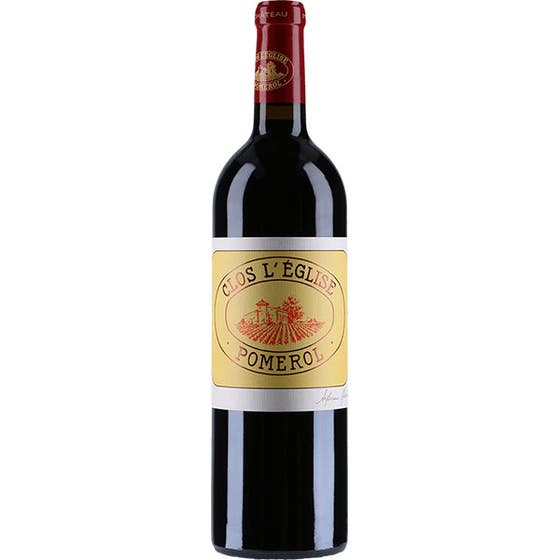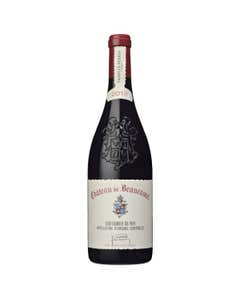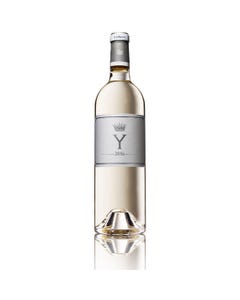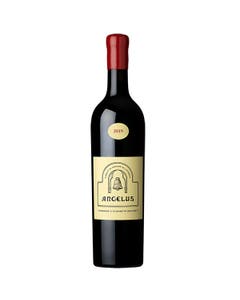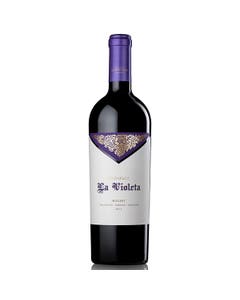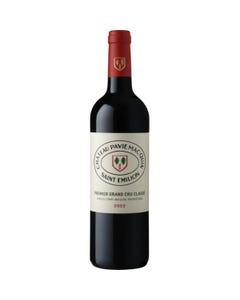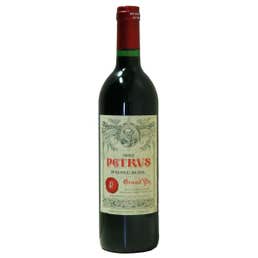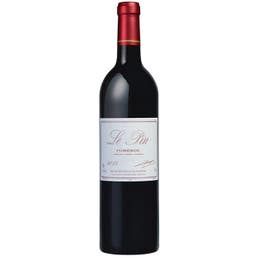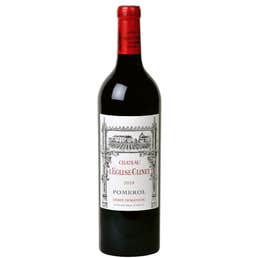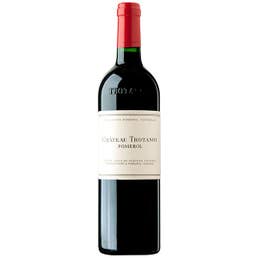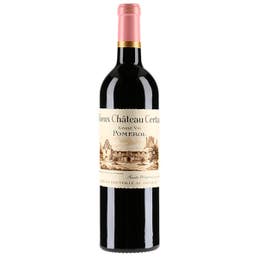Clos L’Eglise 2004
• Domaine: Clos l'Eglise
• Appellation: Pomerol
• Origin: Right Bank, Bordeaux, France
Clos l’Eglise is a richly concentrated, powerful, age-worthy Pomerol run by husband and wife team, Hélène Garcin and Patrice Lévèque. Patrice is an impassioned vigneron and Hélène is a gifted businesswoman. Together, they are a powerhouse couple who has managed to take not only Clos l’Eglise, but their other properties such as the Saint-Émilion Grand Crus Classés estate, Château Barde Haut to new heights. Clos l’Eglise is a serious Pomerol, with ample fruit qualities coupled with intense power and concentration. The wine is ageable, and unlike a lot of other Pomerols, requires a bit of time before it can be enjoyed. With its gorgeous cedar-like aromas and velvety tannins, we can assure you this wine is well-worth the wait.
Clos l’Eglise is one of the older estates in Pomerol, and origins of the estate go all the way back to the 18th Century. The property was once a part of the vast Gombaude Guillot Estate, which was sectioned off throughout the decades. Eventually, Clos l’Eglise was split into a 14 hectare property that was divided once more by a road. On one side of the road lay Clos l’Eglise, and on the other side lay what is now a property associated with the legendary deceased legend, Denis Durantou. That property is known as L’Eglise Clinet. In the 20th Century, Clos l’Eglise was acquired by Sylviane Garcin-Cathiard. Sylviane was the little sister of the Château Smith Haut-Lafite located in the Pessac-Léognan portion of the Left Bank. Sylviane purchased the property for the hefty sum of 12 million euros, which was considered a record at the time. Additional funds were needed to make improvements to the vat room, and the older concrete vats were modernized. The property is presently managed by Helene Garcin and her husband, Patrice. Helene has a great business acumen and makes some intelligent hiring decisions such as hiring Michelle Rolland and Alain Reynaud to consult on the vintages.
Clos l’Eglise has luminous neighbors, such as Château Trotanoy and Château Vieux Château Certan. The impressive terroir of this 5.89 hectare property is filled with rich clay and gravel with a heavy iron concentration, yielding an intense and powerful wine. Initially, the property had a healthy percentage of Cabernet Sauvignon, but that varietal was removed in favor of the star of the region, Merlot. Today, the vineyard is planted with 70% Merlot and 30 Percent Cabernet Franc. At this property, vigneron Patrice Lévèque treats the vines like they are his children, and respect is at the forefront of everything they do here. Clos l’Eglise does not believe in producing wines to satisfy a demand, instead they produce wines because they want to capture the unique aspects of the terroir in this special place. The vines are sustainably and organically farmed, and Clos l’Eglise has the High Environmental Value Certification of 3. The majority of the vines here are 35 years old and are hand-picked each harvest. The wine is then aged in 100% new French Oak prior to being bottled.
Tasting Notes
"Made in a very forward style, the 2004 Clos l’Eglise offers sweet mocha-infused black raspberry and chocolate cherry-like fruit in its intense aromatics. In the mouth, it is pure silk, medium-bodied, and beautifully concentrated with no hard edges. Filled with sensual fruit, glycerin, and body, this is a delicious, food and consumer-friendly, complex Pomerol that should drink beautifully for 12-14 years.amel, coffee, black cherries, figs, and plums. Full-bodied, rich, and textured, it is atypical in that it does not resemble the more linear, tarter style of most 2004s." Robert Parker Jr., The Wine Advocate, (6/28/2007), Rating: 91 Drink: 2007-2021
| Stock Status | Out of Stock |
|---|---|
| Appellation | Pomerol |
| Vintage | 2004 |
| Brand | Clos L'Eglise |
| Shipping Weight | 3.000000 |

